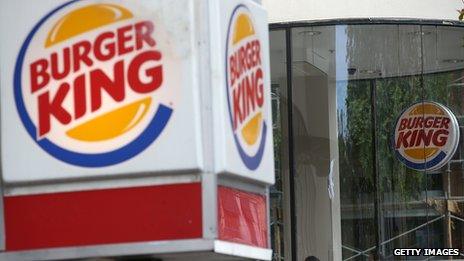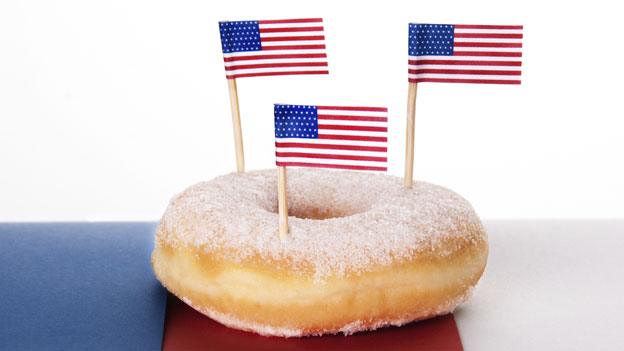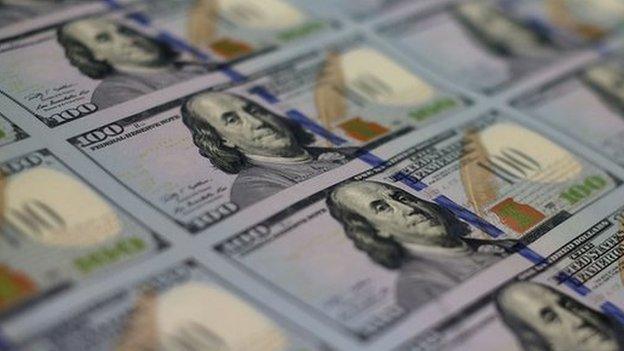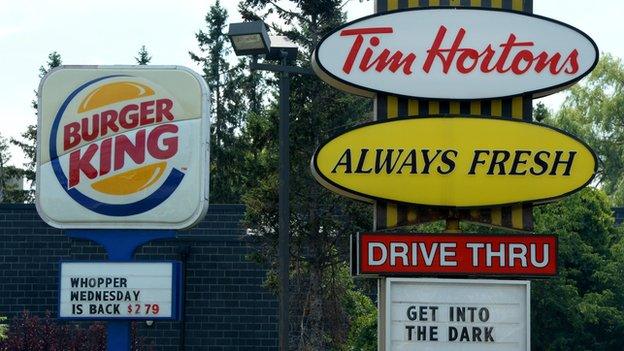Burger King and Tim Hortons agree merger details
- Published

The merged company would become the world's third-largest fast-food chain
Burger King has confirmed that it plans to buy Tim Hortons, the Canadian coffee and doughnut chain, for about $11bn (£6.6bn; 8.3bn euros).
The deal would create the world's third-largest fast-food chain, with 18,000 restaurants in 100 countries.
The new group would have a market capitalisation of about $18bn and annual sales in the region of $23bn.
Burger King's majority shareholder, 3G Capital, will own about 51% of the merged company.
Under the terms of the deal, which has been unanimously approved by both companies' boards of directors, Tim Hortons shareholders will receive 65.50 Canadian dollars ($59.74; £36.10) in cash and 0.8025 shares of the new company for every share they own, the companies said in a joint statement, external.
Warren Buffett's investment firm Berkshire Hathaway will contribute $3bn "in preferred equity financing" to the deal, the companies said, but would not have any managerial control over the business.
Although Burger King's shares closed up 19.5% on Monday after it was revealed the two companies were in talks, shares closed down 4.32% on Tuesday when the terms were finalised.
However, investors were cheered by the prospect for Tim Hortons: shares in the firm ended up 8.47% on Tuesday, followed by a 19% rise in the share price on Monday.
Tax avoidance
The firms have said that any new group would have its headquarters in Canada, where corporate taxes are lower.
These so-called "tax inversion" deals are attracting increasing criticism in the US, where President Barack Obama is understood to be looking at how they can be prevented in future.
The US corporate tax rate is 35%, but 26.5% in Ontario, Canada, where Tim Hortons is based.
3G Capital, a New York and Rio de Janeiro-based investment company, bought Burger King in 2010 for about $3.3bn and floated the company in 2012, holding on to nearly 70% of the shares.
The companies will retain their separate brand identities, but save costs by sharing corporate services.
Tim Hortons used to be owned by US fast-food chain Wendy's, before being spun off as a separate company in 2006.
- Published15 August 2014

- Published2 May 2014

- Published26 August 2014
